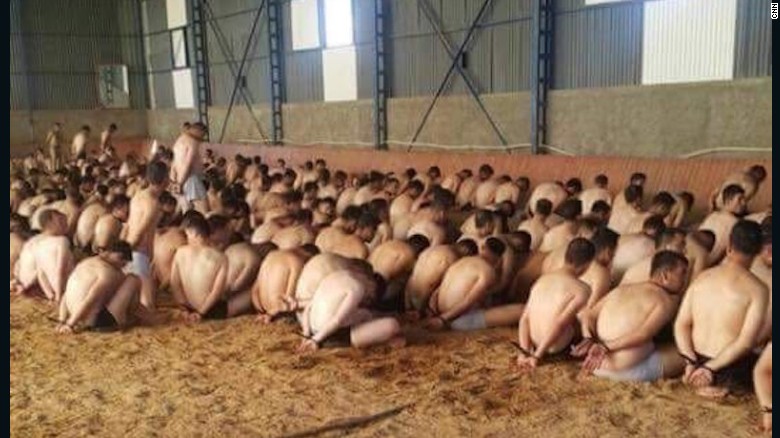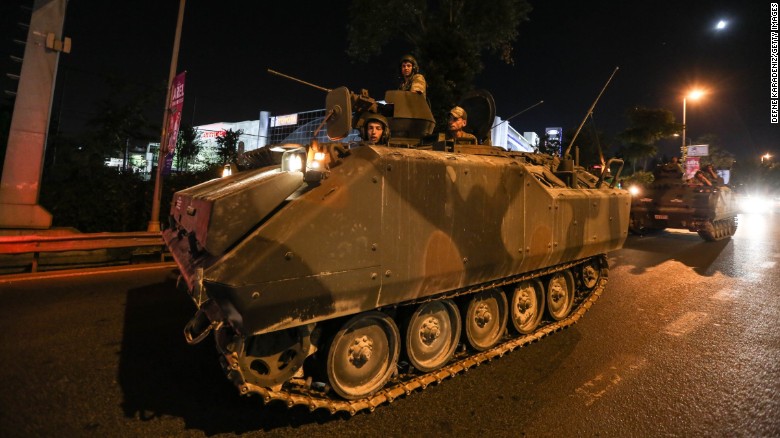Hundreds of soldiers detained in the fallout of the July 15 coup attempt have been released, Turkish state media reported.
As many as 758 of the 989 soldiers held after that failed power grab were freed Saturday, on the recommendation of a judge in Istanbul after the soldiers provided testimony on their involvement in the execution of the plot to oust President Recep Tayyip Erdogan.
The judge called the detention of the soldiers, including military students, unnecessary. However, 231 soldiers remain behind bars.
Suspects can be detained for up to 30 days without charge under a new presidential decree issued in the wake of the foiled revolution. The directive also allows the government to listen in on all conversations suspects have with their legal representation. A state of emergency has also been sanctioned.
Swift retribution
Turkey is slowly returning to some degree of normalcy following the attempted coup, which claimed the lives of 246 people and 24 coup plotters. As the government reasserted its authority, it wasted little time in its response.
The country’s Prime Minister Binali Yildirim quickly made public addresses denouncing the failed military uprising. While Erdogan vowed to seek revenge for “a clear crime of treason” in an exclusive interview with CNN.
The reassertion of power has been swift with mass arrests, detentions and dismissals of suspected coup plotters.

The purge of those alleged to have been involved in the coup has been wide and sweeping. A total of 15,846 people have been detained in connection to the failed coup earlier this month, according to Efkan Ala, the country’s interior minister, state broadcaster TRT reported.
The majority of the detentions have been military — 10,012 people, including 178 generals. In addition to the large number of detentions, TRT reported the interior minister has said 8,113 individuals have been arrested.
Yildirim has also told state-run news agency Anadolu of its intentions to disband Turkey’s elite presidential guard unit.
Arrest warrants for journalists
Turkish authorities have also issued 47 new arrest warrants for journalists, managers and former staff of the Zaman newspaper, the government said Wednesday. An official from Erdogan’s office called the newspaper “the Gulen Movement’s flagship media organization.”

CNN has reached out to Zaman for comment but they had not responded by time of publishing.
This is the latest crackdown on individuals suspected of having ties to alleged coup plotters including cleric Fethullah Gulen, whom Erdogan has repeated cited as the mastermind behind the coup attempt on July 15. Gulen lives in self-imposed exile in the U.S. and has denied any involvement.
“The prosecutors aren’t interested in what individual columnists wrote or said. At this point, the reasoning is that prominent employees of Zaman are likely to have intimate knowledge of the Gulen network and as such could benefit the investigation,” the official said.
Turkey has closed more than 2,000 institutions they say are linked to Gulen.
Previously, 42 warrants were issued on similar grounds earlier last week. A total of 89 warrants have been issued for journalists in the country to date. Meanwhile, Turkey’s broadcasting authority has revoked licenses for 24 radio and television companies believed to have links to Gulen, Anadolu has reported.

In addition to mass arrests, Turkish authorities have fired or suspended at least 60,000 peoplefrom various institutions, including some from state-run organizations, according to Andalou.
As reported by CNN
